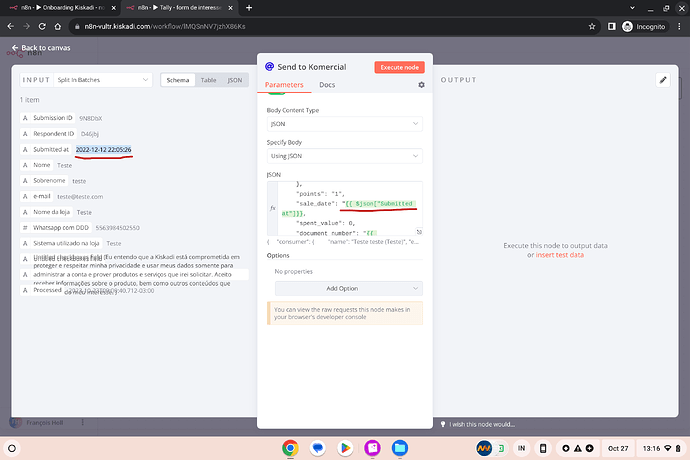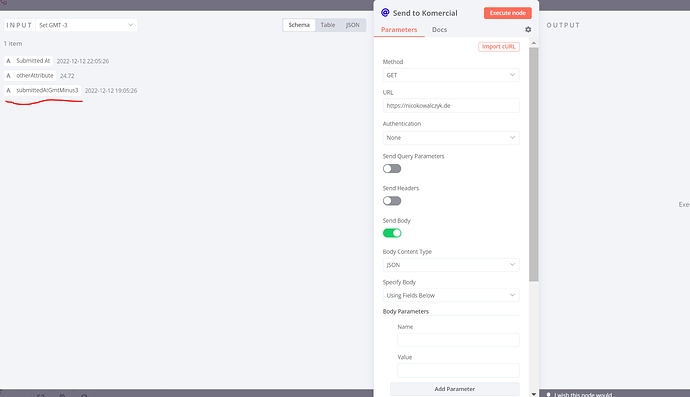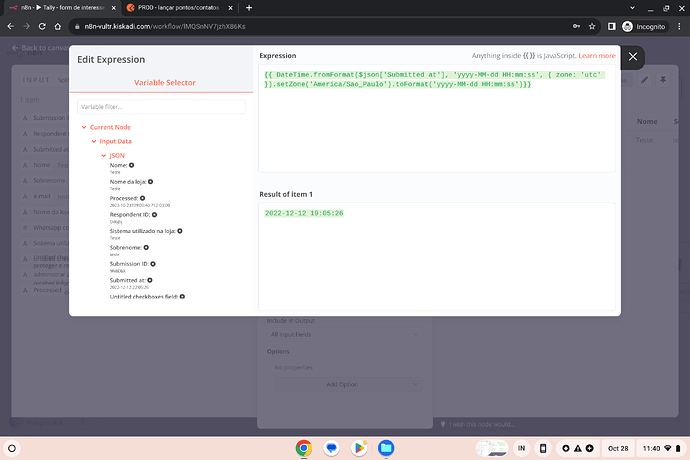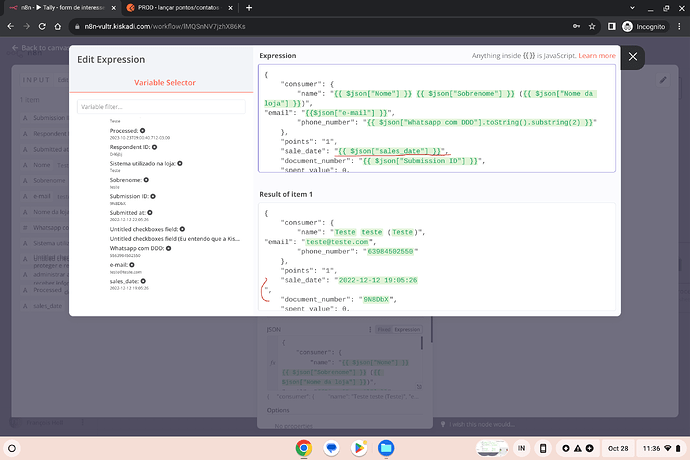fxholl
October 27, 2023, 4:19pm
1
Using a Google Sheet node, i extract records with timestamps in the following format:
2022-12-12 22:05:26
The timezone is GMT, and I need to send this time using GMT-3 (Brazil), in this case: 2022-12-12 19:05:26, in an HTTP node:
Any sugestion on how to do that?
n8n version: 1.9.3
Database (default: SQLite): sqlite
n8n EXECUTIONS_PROCESS setting (default: own, main): main
**Running n8n via (Docker, npm, n8n cloud, desktop app):**docker
Operating system: linux
Jon
October 28, 2023, 2:59am
2
Hey @fxholl ,
It sounds like something you could do using Luxon if you just need to remove 3 hours, check out the docs here: Handling dates | n8n Docs
The quick version would be something like {{ $json.date.minus({hours: 3}) }}
fxholl:
2022-12-12 22:05:26
Hey @Jon @fxholl
@fxholl you can just copy the Set node from my workflow, put it before the send to komercial node and then you have the gmt-3 date within the usable attributes.
This is the needed code:
{{ DateTime.fromFormat($json['Submitted At'], 'yyyy-MM-dd HH:mm:ss', { zone: 'utc' }).setZone('America/Argentina/Buenos_Aires').toFormat('yyyy-MM-dd HH:mm:ss') }}
And here you find the formatted date.
Hope that helps.
Cheers
2 Likes
fxholl
October 28, 2023, 2:40pm
4
The SET node works beautifully. I adjusted the formula to Brasil/Sao_Paolo:
{{ DateTime.fromFormat($json['Submitted at'], 'yyyy-MM-dd HH:mm:ss', { zone: 'utc' }).setZone('America/Sao_Paulo').toFormat('yyyy-MM-dd HH:mm:ss')}}
However, I now have a problem in the following HTTPS node: when I use the BR field, it inserts a line break and the node returns an error:
Here is the flow:
1 Like
Hey @fxholl .trim() could help here.
...
"sales_date": "{{ $json["sales_date"].trim() }}",
...
Hope that helps. Eben if this should not happen at all.
Cheers
2 Likes
fxholl
October 28, 2023, 7:23pm
6
nico-kow:
.trim()
trim function did the trick!!
thank you so much for the help!!
system
November 4, 2023, 7:24pm
7
This topic was automatically closed 7 days after the last reply. New replies are no longer allowed.





